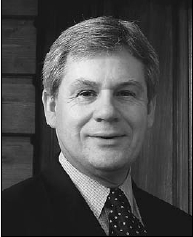
The Korea-EU Free Trade Agreement will benefit Korean and European firms in the energy sector, but many non-tariff barriers still limit market access, president of Alstom Korea Barry Howe said.
“The FTA will obviously benefit countries because it brings down tariff barriers, so what is imported should be at a lower cost, no matter which way it is going, but in my own industry, there are several more barriers,” Howe said.
Using the example of Doosan and its supposed stranglehold on the Korean power generation market, he said that non-tariff barriers such as national preference have prevented foreign and Korean firms from competing with Doosan Group companies in Korea.
“That is, until now. The situation is beginning to change. We are now seeing Korean companies approaching European companies to acquire technologies that will allow them to compete with Doosan in the future,” he said.
However, he said that such developments aren’t seen across the board.
“In other sectors, there are still barriers. In the rail sector, a substantial non-tariff barrier, which is a presidential decree from 2003 which effectively prevents European companies from bidding trains into the railway sector in Korea.”
Howe was, however, hopeful that implementation of the pact will have a positive effect on solving related problems.
“They (tariff and non-tariff barriers) are separate but it helps because the trade dialogue between the EU and Korea is now well established and there is a clear understanding in the Korean government for the need to make trade as clear and fair as possible.”
With regards to the energy industries of Korea and the EU separately from the trade pact, Howe said that companies from the two parties need to work together to stay ahead of competition in environmental businesses,
Howe, who is the acting chairman of the Energy and Environment Committee of the European Union Chamber of Commerce in Korea, said that as emerging countries enter the market for environmental technologies, Korean and EU businesses should work together to maintain their lead.
“There is still scope for collaboration because technology is evolving. There is new innovation on a continual basis, and I think there is scope for collaboration between Korean and EU companies,” Howe said.
“Especially with in mind the fact that there is developing competition from other countries. China is an obvious example. And we are both facing that competitive threat for the future and we might to better in competing if we work together.”
According to Howe, developing technologies and running pilot facilities to test them require heavy investments, and that as both Korean and EU entities conduct R&D in related field companies from the two sides are often spending large amounts on overlapping areas.
“In some cases it might be better to share resources and share the results of the development to benefit of our respective industries, to allow us to be more competitive in the future, when competing with some of the emerging countries like China.”
By Choi He-suk (cheesuk@heraldcorp.com)







![[Graphic News] More Koreans say they plan long-distance trips this year](http://res.heraldm.com/phpwas/restmb_idxmake.php?idx=644&simg=/content/image/2024/04/17/20240417050828_0.gif&u=)
![[KH Explains] Hyundai's full hybrid edge to pay off amid slow transition to pure EVs](http://res.heraldm.com/phpwas/restmb_idxmake.php?idx=644&simg=/content/image/2024/04/18/20240418050645_0.jpg&u=20240419100350)





![[From the Scene] Monks, Buddhists hail return of remains of Buddhas](http://res.heraldm.com/phpwas/restmb_idxmake.php?idx=652&simg=/content/image/2024/04/19/20240419050617_0.jpg&u=20240419175937)

![[KH Explains] Hyundai's full hybrid edge to pay off amid slow transition to pure EVs](http://res.heraldm.com/phpwas/restmb_idxmake.php?idx=652&simg=/content/image/2024/04/18/20240418050645_0.jpg&u=20240419100350)

![[Today’s K-pop] Illit drops debut single remix](http://res.heraldm.com/phpwas/restmb_idxmake.php?idx=642&simg=/content/image/2024/04/19/20240419050612_0.jpg&u=)